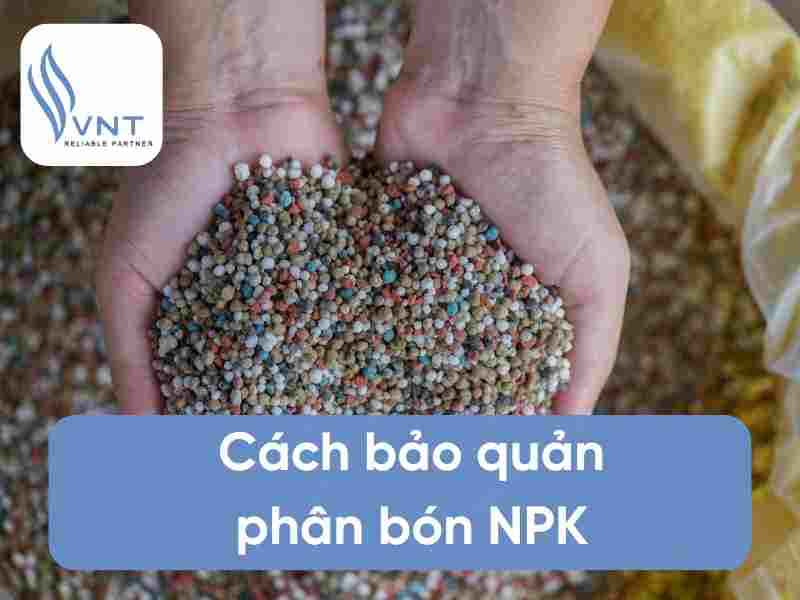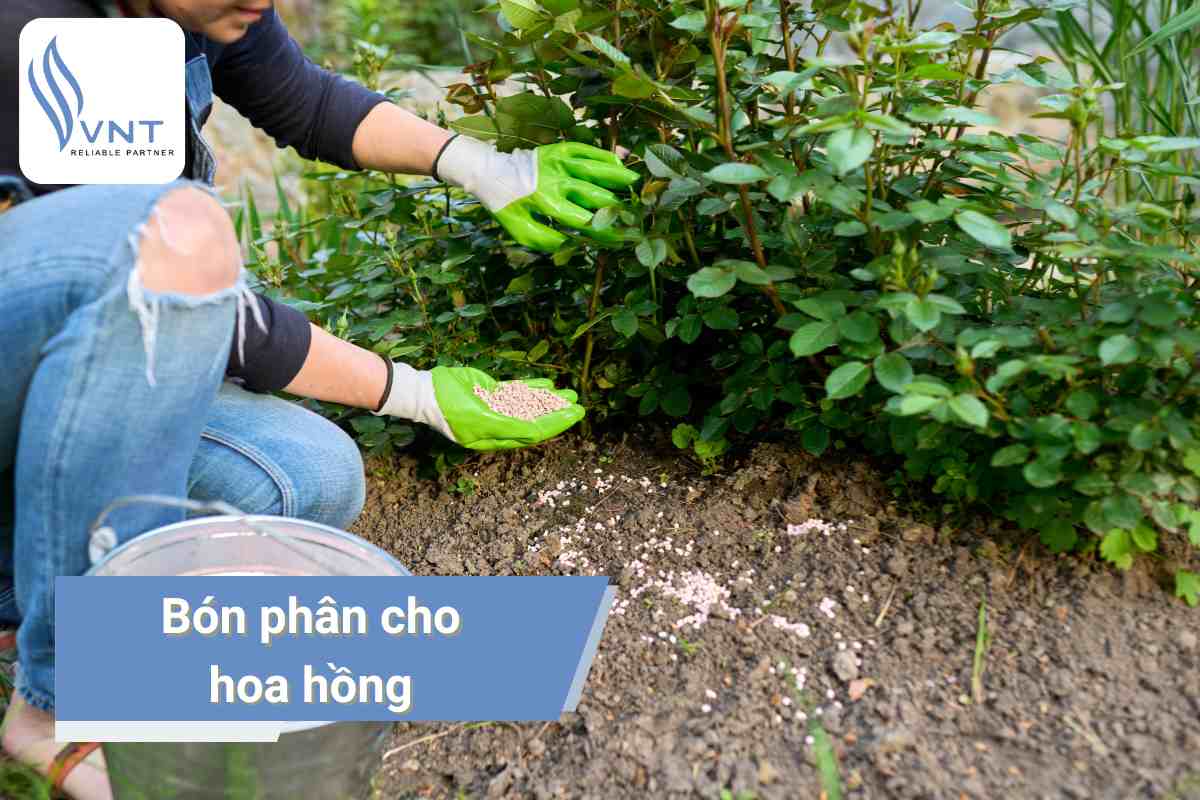Instructions on how to fertilize roses most properly
Fertilizing roses plays a very important role. It helps the plant grow healthy and bloom regularly. Let's learn about suitable fertilizers, effective fertilization methods and important notes to keep your rose plant healthy with VNT Company.
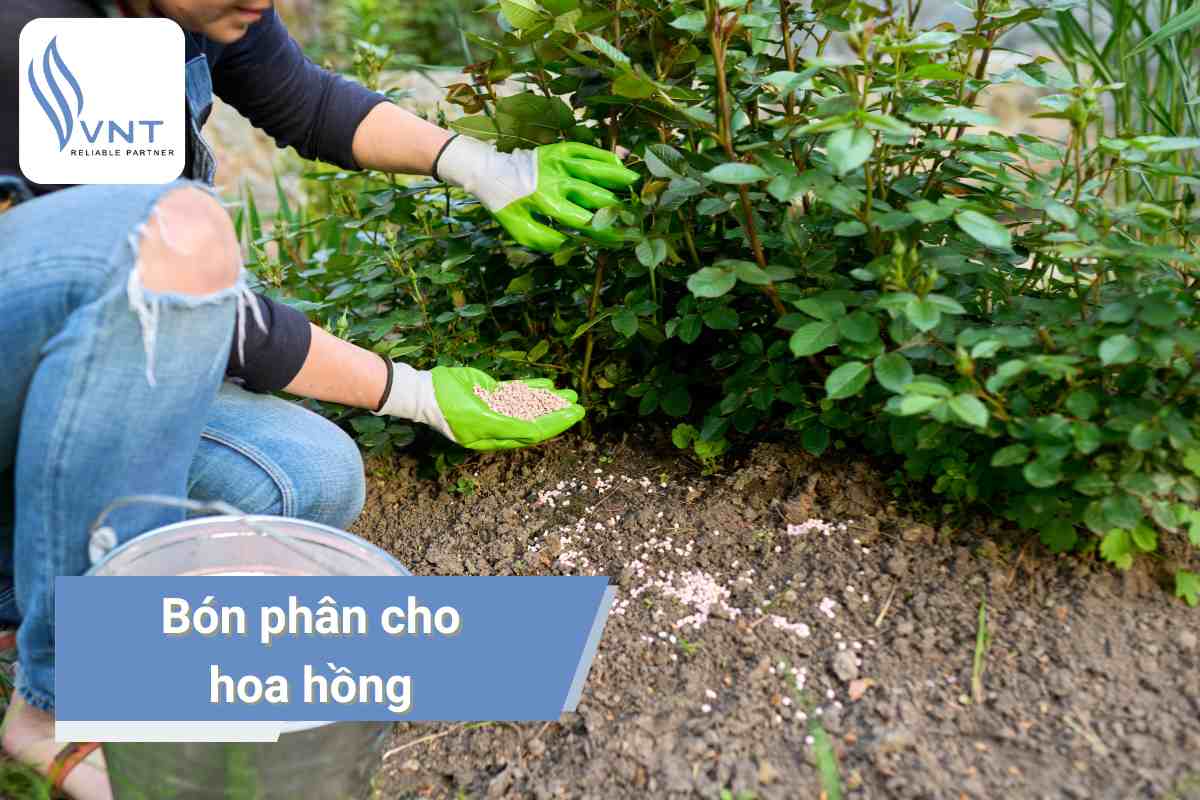
Fertilizing roses
Suitable fertilizers for roses
When caring for roses, it is impossible not to mention choosing the right fertilizers. The right fertilizers not only provide nutrients for the plants but also help improve soil quality.
NPK fertilizers
NPK fertilizers contain three important nutrients that roses need to grow healthily. Nitrogen (N) helps promote leaf and stem growth, phosphorus (P) supports root formation and stimulates flower production. While potassium (K) helps plants withstand adverse environmental factors.
Investing in NPK fertilizers in the right proportions will help your roses grow strongly and produce many beautiful flowers. Compared to organic fertilizers, NPK fertilizers work quickly, but you also need to pay attention not to overuse them, consider the dosage to avoid harming the plants.
However, as a knowledgeable gardener, we also need to combine organic fertilizers and biofertilizers to ensure that all nutritional needs of plants are met in the most harmonious way.
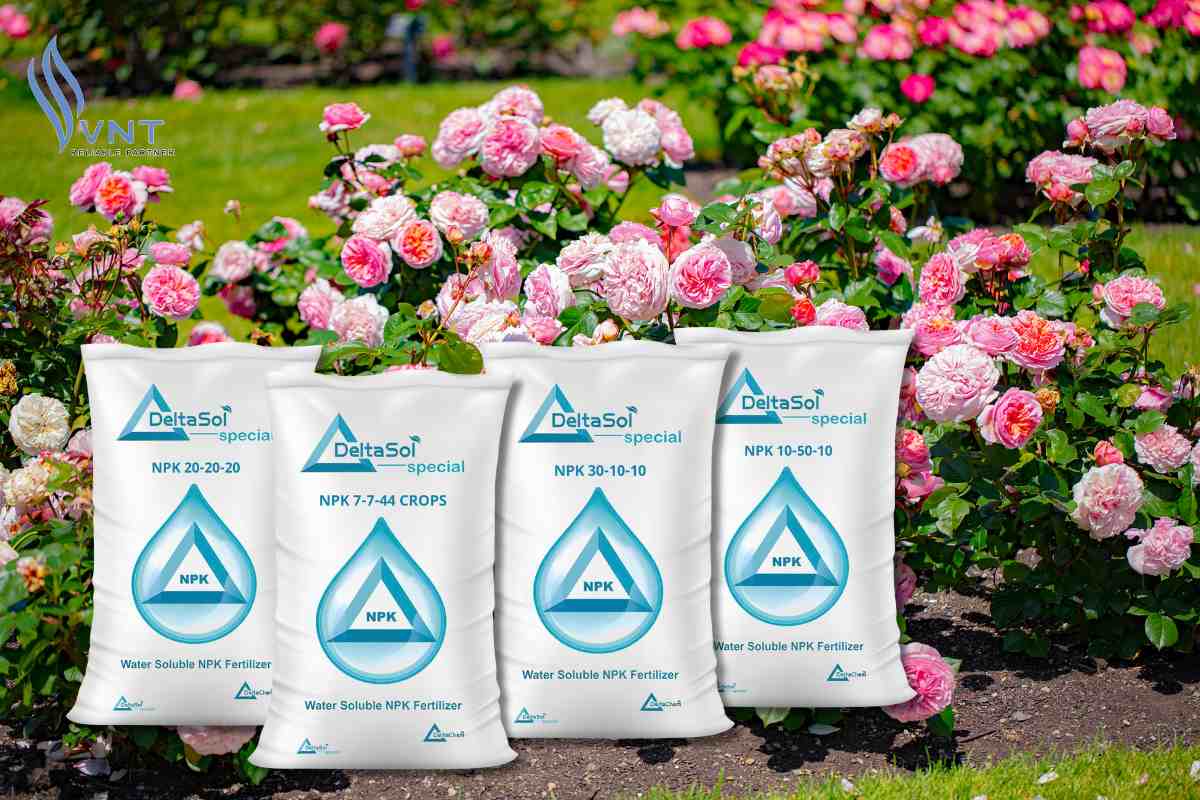
NPK Fertilizer for Roses
Organic Fertilizer
Organic fertilizers bring a series of great benefits to rose plants. Not only providing nutrients, organic fertilizers also help improve soil quality in a sustainable way. The ingredients in organic fertilizers such as vermicompost or cow manure will slowly decompose, providing nutrients in a reasonable and natural way.
Benefits of organic fertilizers for roses:
- Helps improve soil structure and fertility
- Increases soil moisture and water retention
- Provides essential micronutrients for plants
- Increases plant resistance to adverse conditions
When fertilizing roses with organic fertilizers, you need to pay attention to the right time and dosage. Usually, organic fertilizers should be applied during the seedling stage, when the plants are still weak and need a lot of nutrients. Compared to chemical fertilizers, the effect of organic fertilizers is slow but sustainable, thus helping plants grow more steadily over a long period of time.
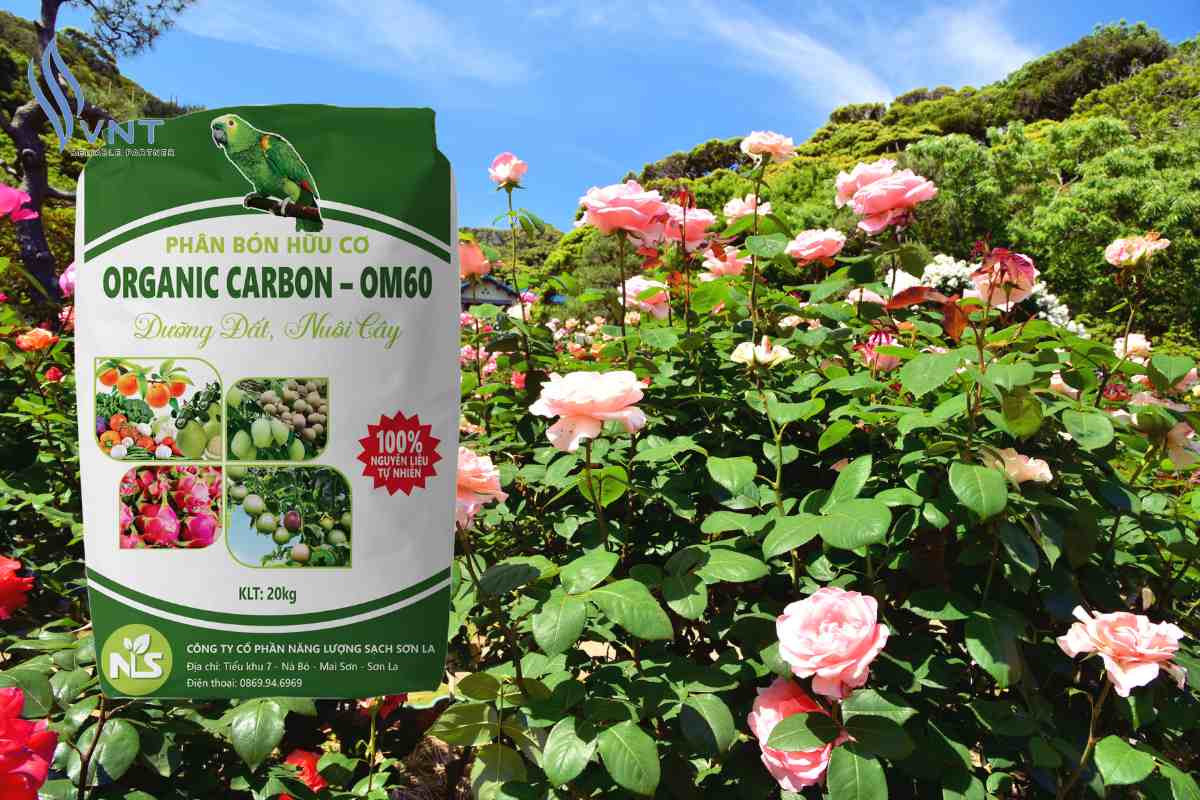
Organic fertilizer for roses
Biological fertilizer
Biological fertilizer is a special type of fertilizer containing beneficial microorganisms, which help convert nutrients into a form that is easily absorbed by plants. The role of biological fertilizer in the development of roses cannot be underestimated. It not only provides all the necessary nutrients but also stimulates the development of microorganisms in the soil, thereby improving soil quality.
Positive effects of biological fertilizer:
- Stimulates the absorption of nutrients by the roots, helping plants grow stronger.
- Improve soil structure, making the soil more porous and airy.
- Enhance the natural resistance of plants to diseases and harsh environmental conditions.
When using biological fertilizer for roses, you need to consider using suitable strains of microorganisms. Preparations containing microorganisms capable of fixing nitrogen and decomposing phosphorus are the top choices that you should consider.
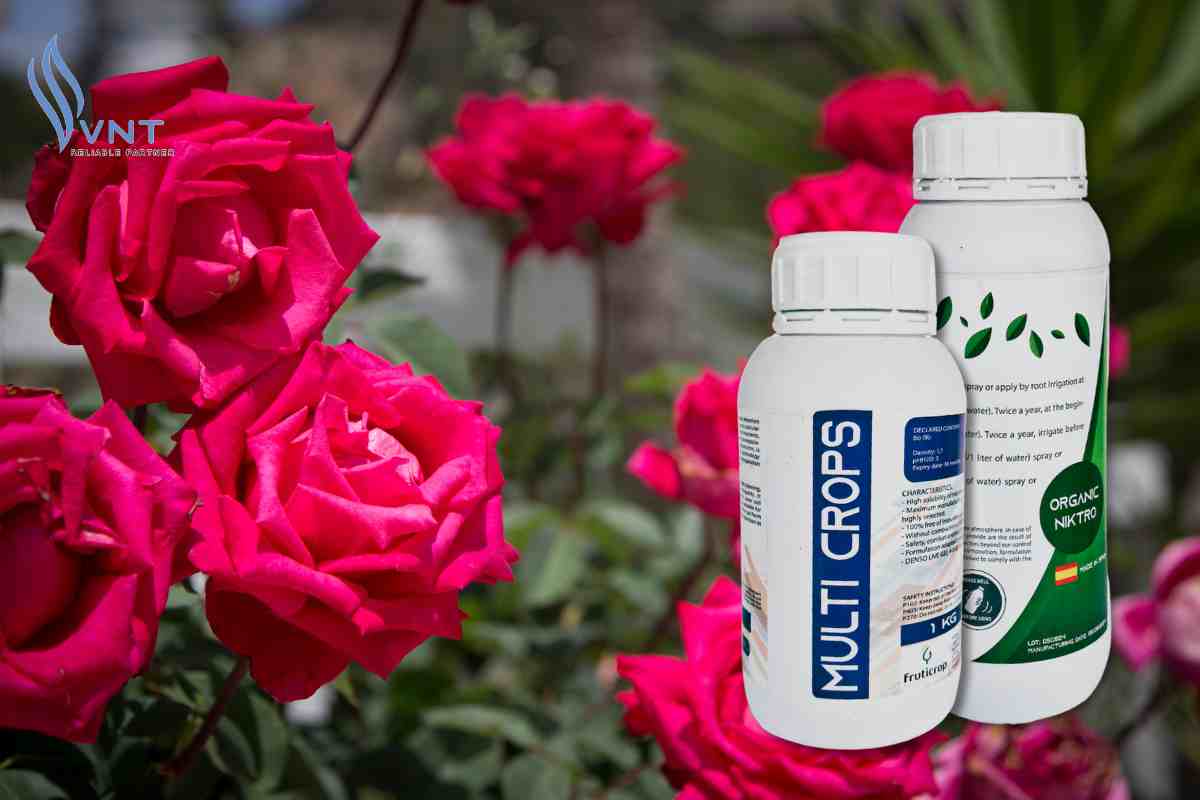
Biofertilizers for Roses
See more
Technical Process of Fertilizing Rice to Achieve High Yield
Plants Poisoned by Nitrogen and Treatment Measures
Fertilizing Time and Frequency for Roses
Fertilizing time and frequency are very important factors to help roses grow healthily. Choosing the right time to fertilize will ensure that the plant receives enough nutrients at the right time, contributing to the growth of roses.
Ideal time for each stage of growth
Knowing the ideal time to fertilize will help you master how to care for roses. Each stage of growth requires attention to the type of fertilizer and the time of fertilization to achieve the best results.
Detailed timing for each stage:
- Root nurturing stage: Fertilize with high phosphorus fertilizer immediately after the flowers fade to stimulate root growth and prepare for the growth of new shoots.
- Budding stage: Fertilize with nitrogen fertilizer to keep leaves green and healthy. Should be applied after pruning to avoid damaging new shoots.
- Flowering stage: When flower buds begin to form, it is necessary to fertilize with high potassium fertilizer to support the best flowering process. Preparing for roses does not only stop at choosing the type of fertilizer but also requires the time and method of fertilizing appropriately so that your roses are always fresh.
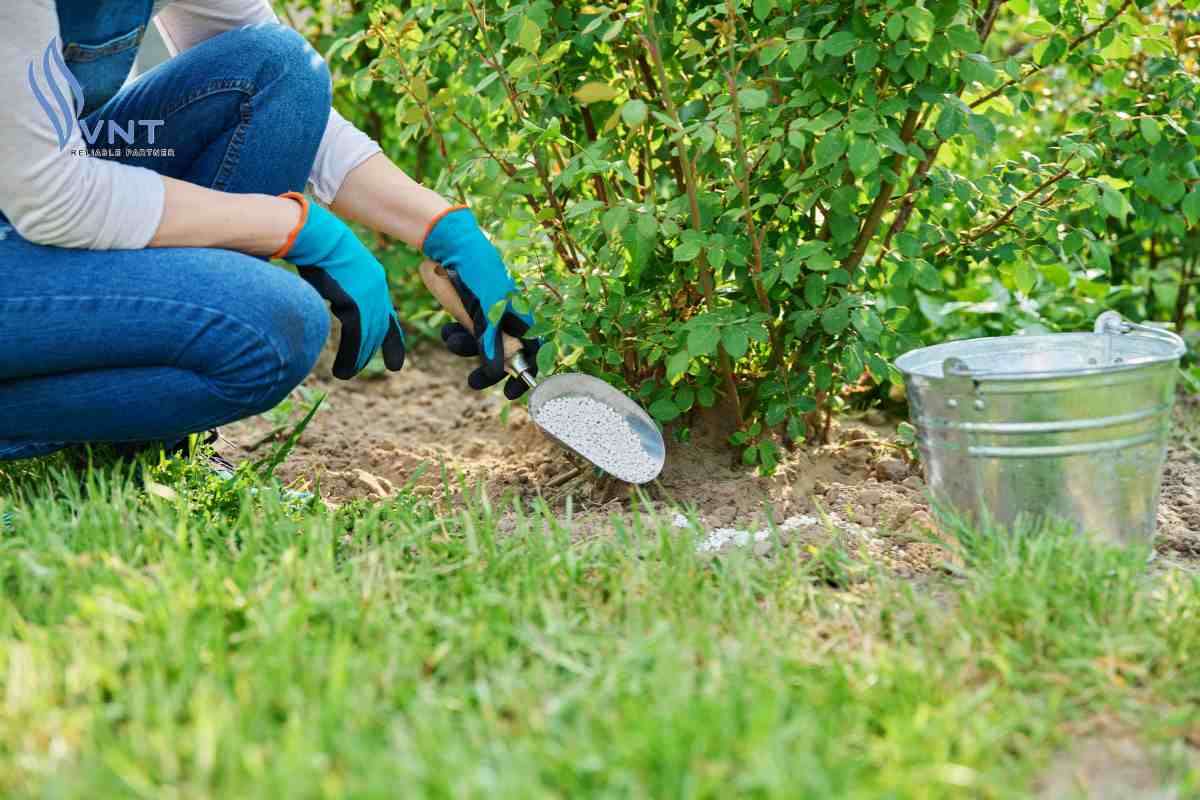
When to fertilize roses
Fertilizing frequency during the growing season
During the growing season, the frequency of fertilizing roses is also very important to ensure that the plant does not lack nutrients and grows well. It is recommended that fertilizing should be done regularly to keep the plant in a healthy state.
Recommended fertilizing frequency:
- In spring and summer, fertilizing every 7-10 days is optimal.
- During the period when the plant is growing strongly: Pay attention to adjusting the amount of fertilizer to suit the health of the plant.
- Stop fertilizing about 6-8 weeks before the first frost: This helps to minimize the growth of weak new shoots in the cold winter.
Dividing the fertilizer dose and increasing the frequency of fertilizing is a great way to ensure that roses grow evenly and beautifully at each stage. Always observe the condition of the plant to adjust promptly!
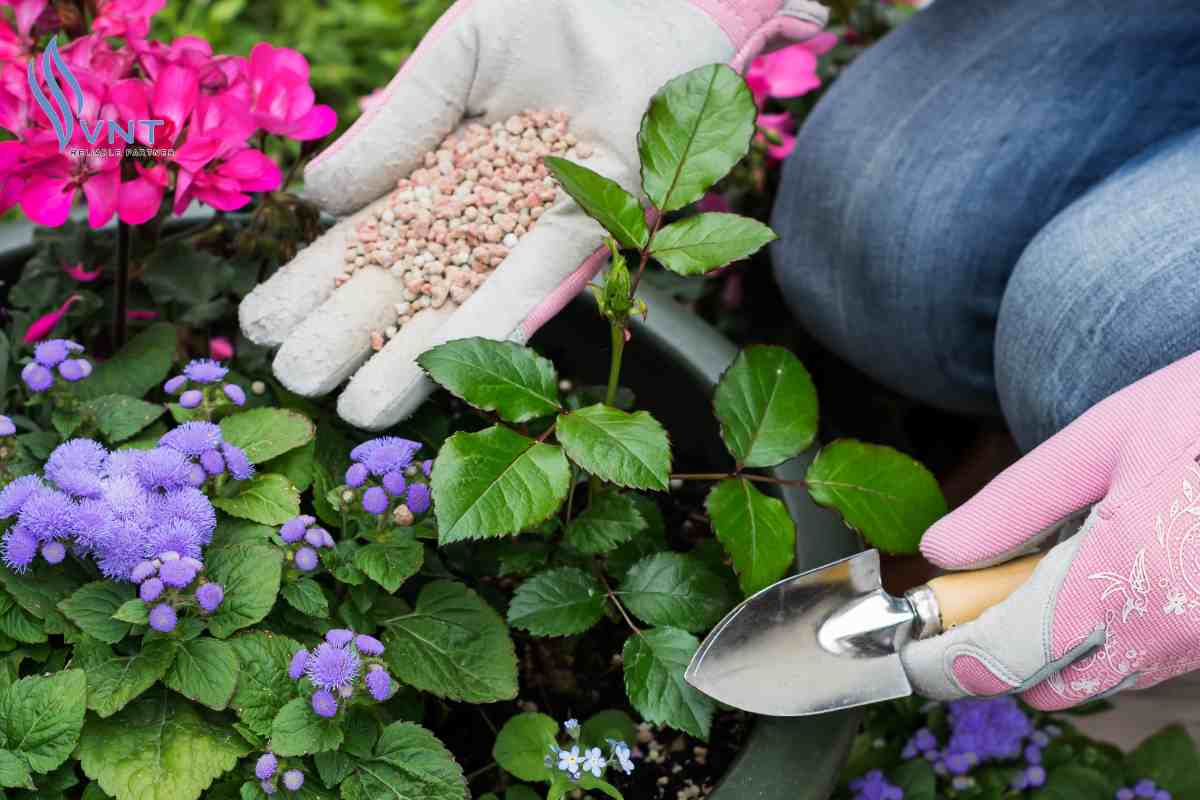
Reasonable fertilization frequency
Fertilizing techniques for roses
Fertilizing roses requires not only attention to the time and type of fertilizer, but also the fertilization technique for optimal efficiency. All techniques must be performed carefully to avoid damaging the roots.
Direct fertilization method
Direct fertilization is one of the popular and easy-to-implement methods for rose plants, but you also need to pay attention to some important points to avoid negative impacts on the roots.
To fertilize directly into the soil, follow these steps:
- Spread fertilizer around the base of the tree: Keep a safe distance of 2-3 cm from the base of the tree. This helps avoid root burn.
- Burning the soil: After spreading the fertilizer, use your hands or a shovel to bury the fertilizer in the soil, helping the fertilizer to decompose slowly and provide nutrients for the plant.
- Watering: This is a very important step. After fertilizing, you need to water enough to stimulate the fertilizer to dissolve into the soil and help the plant absorb nutrients better.
By following this process correctly, your rose plant will easily absorb all the nutrients it needs.
How to apply water-soluble fertilizer
Applying water-soluble fertilizer is an effective technique to help rose plants quickly absorb nutrients. This method is often applied in cases where the plant is growing strongly and needs immediate nutrition.
Steps to apply soluble fertilizer:
- Prepare fertilizer: Dilute NPK fertilizer in water at the recommended ratio (usually 50-100g of fertilizer for about 10-15 liters of water).
- Water the base of the plant: Use this mixture to water directly into the soil around the base of the rose plant. You can also spray it on the leaves to provide nutrients directly to the leaves, helping the plant absorb more.
- Divide the dosage: Divide the fertilizer dosage to ensure that nutrients are provided regularly and most suitable for the growth of the plant. This technique helps your rose plant absorb nutrients quickly. At the same time, it helps the plant grow evenly and healthily.
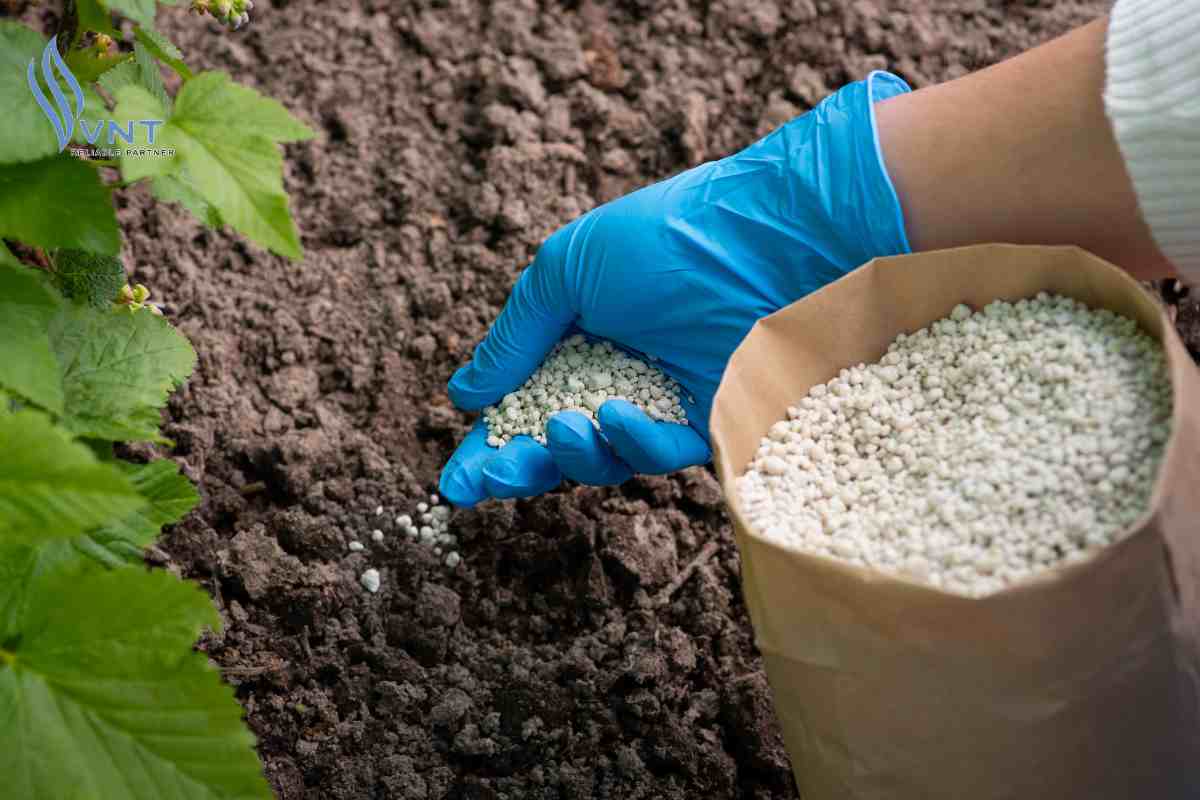
Fertilizing Techniques for Roses
Things to Avoid When Fertilizing
To avoid mistakes when fertilizing roses, you should note the following:
- Too much fertilizer: This can cause the plant to be poisoned by excess nutrients.
- Fertilizing when the plant is weak: Only fertilize when the plant has recovered and is strong enough to absorb nutrients.
- At the wrong time: Avoid fertilizing when it is raining or too sunny, as this will affect the plant's ability to absorb nutrients.
- Fertilizing when the soil is too dry or too wet: Wet soil will cause the fertilizer to be washed away, while dry soil will prevent the roots from absorbing nutrients.
When fertilizing, if you do these things correctly, it will help the rose plant grow in the best way.
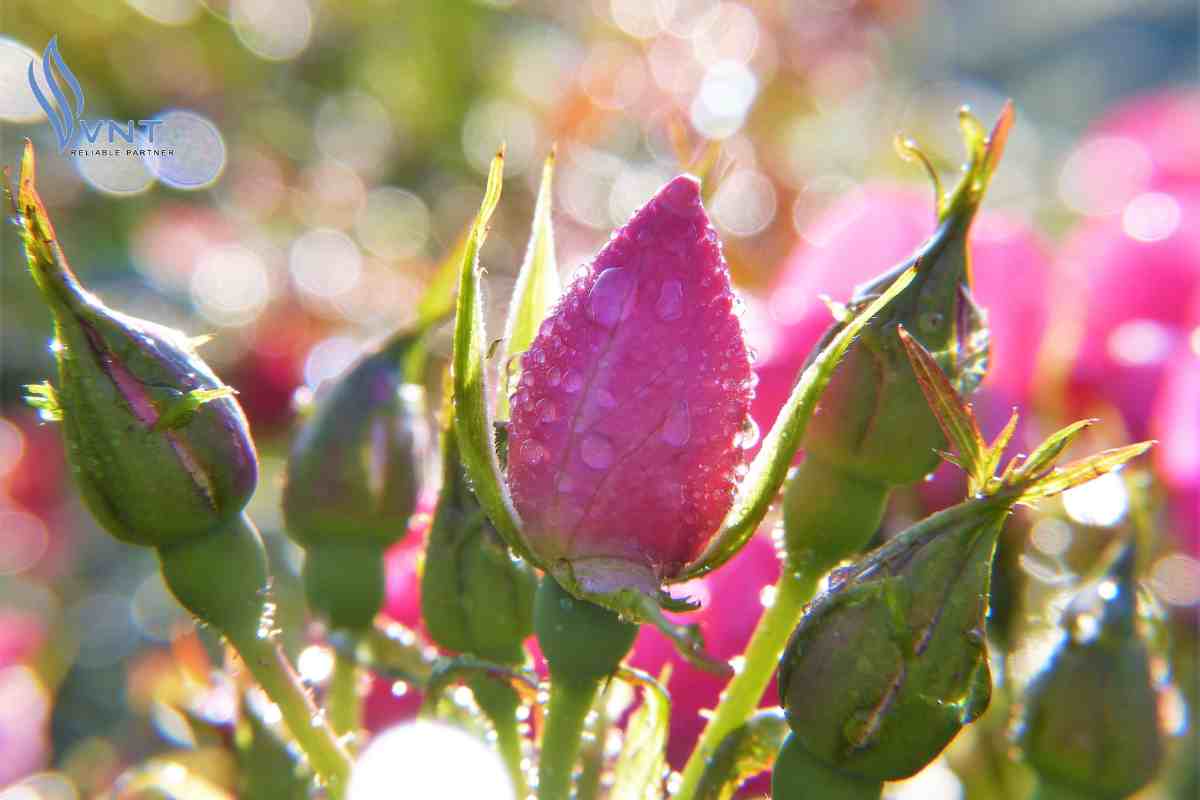
Things to avoid when fertilizing
How to tell if your rose plant is lacking or having too much fertilizer
To tell if your rose plant is lacking or having too much fertilizer, you can rely on some of the following signs:
- Nitrogen (N) deficiency: The leaves will tend to turn yellow and grow poorly.
- Potphosphate (P) deficiency: We often see small, dark green leaves and dark red spots on the leaves.
- Potassium (K) deficiency: The leaves are narrow and the tips of the leaves are wilted.
- Excess fertilizer: The plant will grow quickly, but the stem will be weak and break easily.
Regularly monitoring the condition of the plant will not only help you detect problems promptly but also help you adjust the nutritional regimen for your roses appropriately.
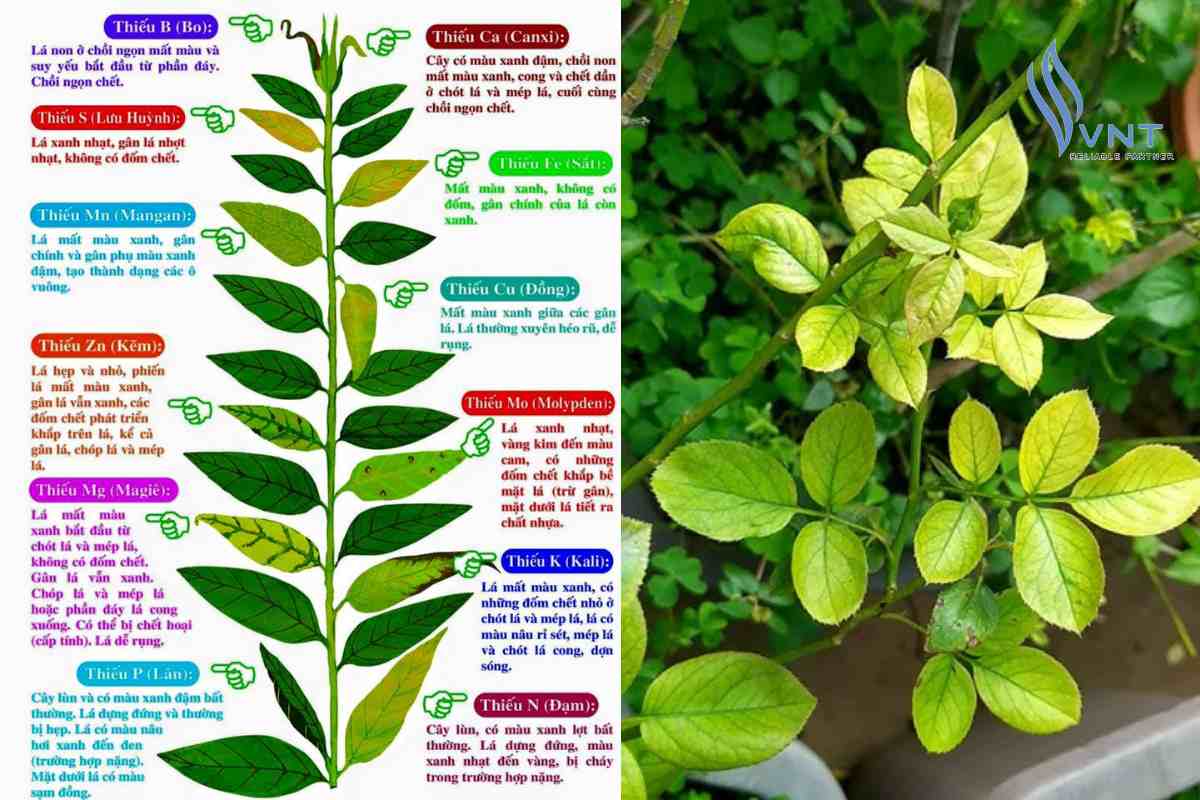
How to identify if roses are lacking or having too much fertilizer
The impact of weather on fertilization
When fertilizing roses, you also need to pay attention to the weather factor. Temperature and humidity can greatly affect the plant's ability to absorb nutrients.
The impact of temperature and humidity
Temperature and humidity are two main factors that determine the growth of rose plants. When the temperature drops, the decomposition of organic matter in the soil also slows down. Therefore, in winter, you should increase the supply of chemical fertilizers to ensure that the plant has enough vitality during this time.
On the contrary, in high temperature conditions, especially in summer, you need to pay attention to the evaporation of nitrogen fertilizer. This can lead to the plant not receiving enough nutrients needed to grow strongly.
Note:
- During the rainy season, always check the soil moisture before fertilizing to avoid leaching.
- It is recommended to fertilize in a cool time for maximum effectiveness.
- It is important to monitor the temperature and humidity regularly to make appropriate adjustments during rose care.
When not to fertilize
There are times when you should avoid fertilizing roses to avoid damaging the plant. One of these is when the weather is too harsh or when the plant is having difficulty growing.
- Too cold or too sunny: Avoid fertilizing in the first weeks of winter, when the soil is cold.
- When the soil is too wet: Fertilizing when the soil is soggy can lead to water not draining quickly, causing loss of soil moisture and affecting the root system of the plant.
- When the plant is sick: When the rose is sick, do not fertilize because this can make the plant more tired and not help the current condition of the plant.
Therefore, knowing when not to fertilize is very necessary in the process of caring for roses.
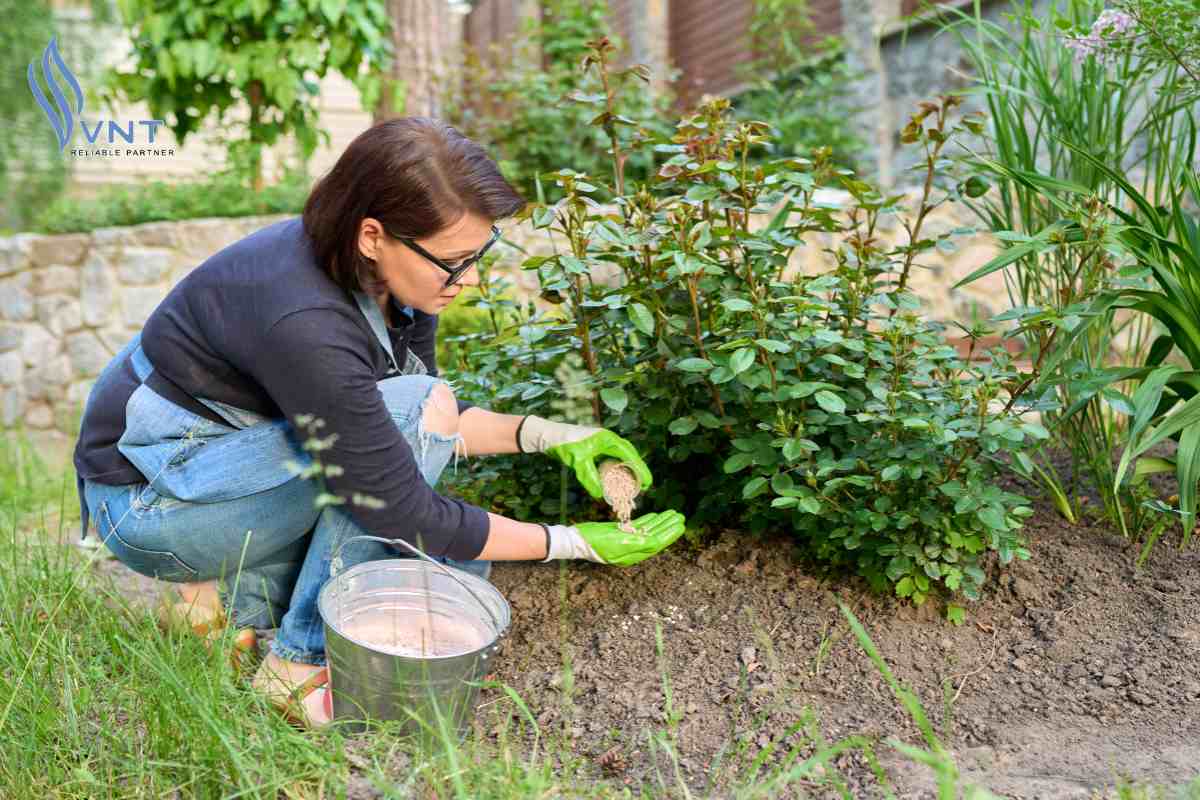
The impact of weather on fertilization
Conclusion
Proper fertilization of roses is one of the decisive factors in helping roses grow healthily and bloom brilliantly. By selecting the right fertilizer and applying the right fertilization techniques, you can gradually care for and nurture your rose pots to become more beautiful every day.
You are looking to buy quality organic and inorganic fertilizers from prestigious brands in the world. VNT Company is the top choice for you. VNT provides all kinds of organic and inorganic fertilizers for plants.
Advantages of buying at VNT
- Distributing, importing and exporting all kinds of fertilizers for all types of plants.
- Always ensure timely support for you in the process of production and cultivation.
- A team of professional, experienced staff, always on hand to answer all questions when customers.
- Continuously improving and upgrading with careful investment in equipment, machinery, and warehouse scale.
- VNT Chemicals is always a reliable address, Always bringing value to customers.
Contact for more details
VNT IMPORT EXPORT TRADING JOINT STOCK COMPANY
Business registration number 0104188003 issued by the Department of Planning and Investment of Hanoi on September 30, 2009
Address: Hamlet 3, Hai Boi Village - Hai Boi Commune - Dong Anh District - Hanoi.
HN Office: Room 1304, CT2-VIMECO Building, Nguyen Chanh, Trung Hoa, Cau Giay, Hanoi.
HCM Office: No. 68B, Nguyen Van Troi, Phu Nhuan District, Ho Chi Minh City.
Hotline 1: 0904616638
Hotline 2: 02466543183
Email: tuyennv@vntradimex.com



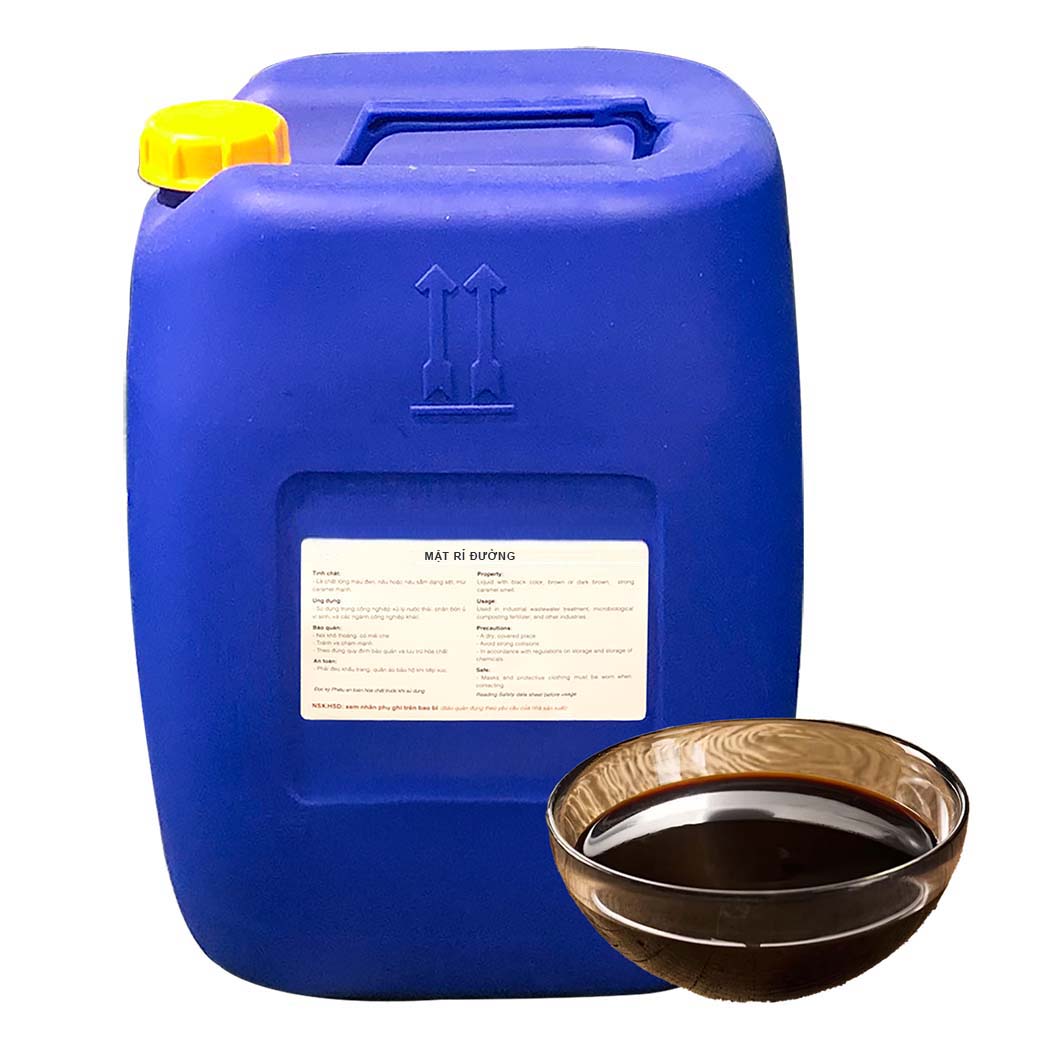
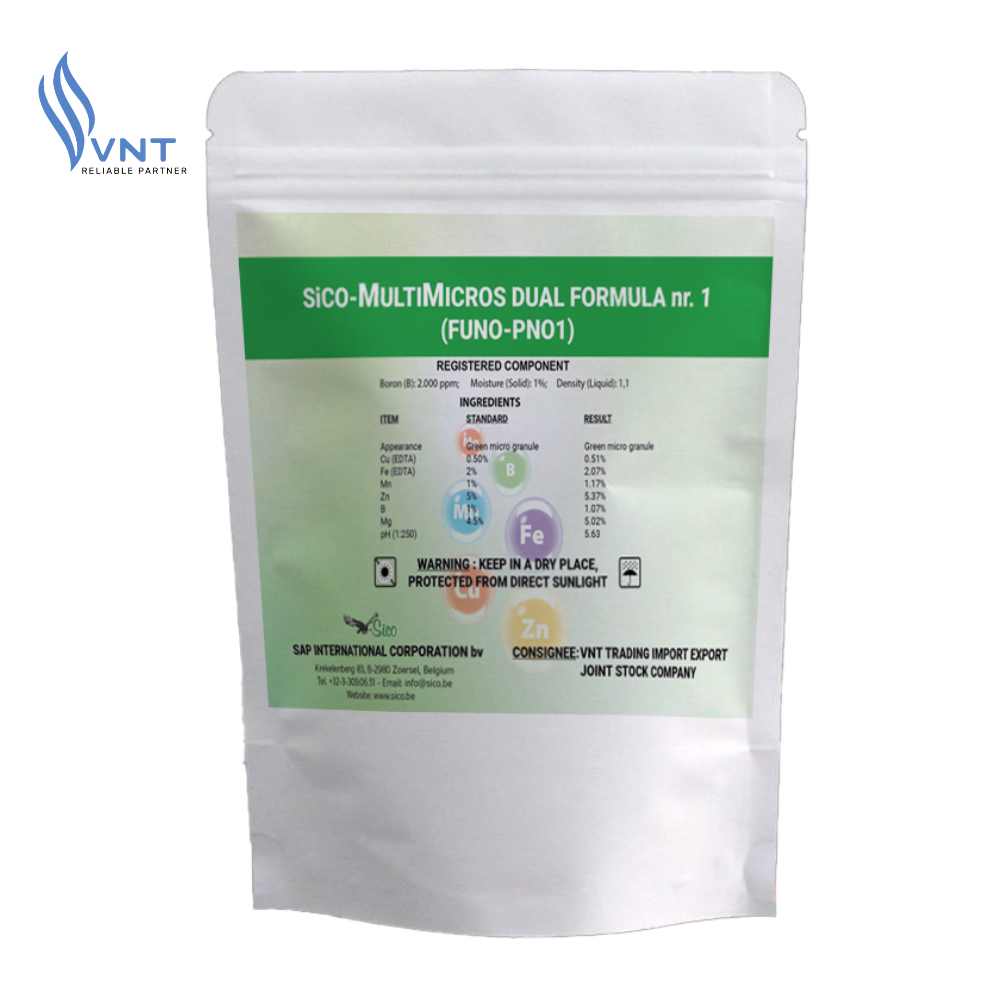
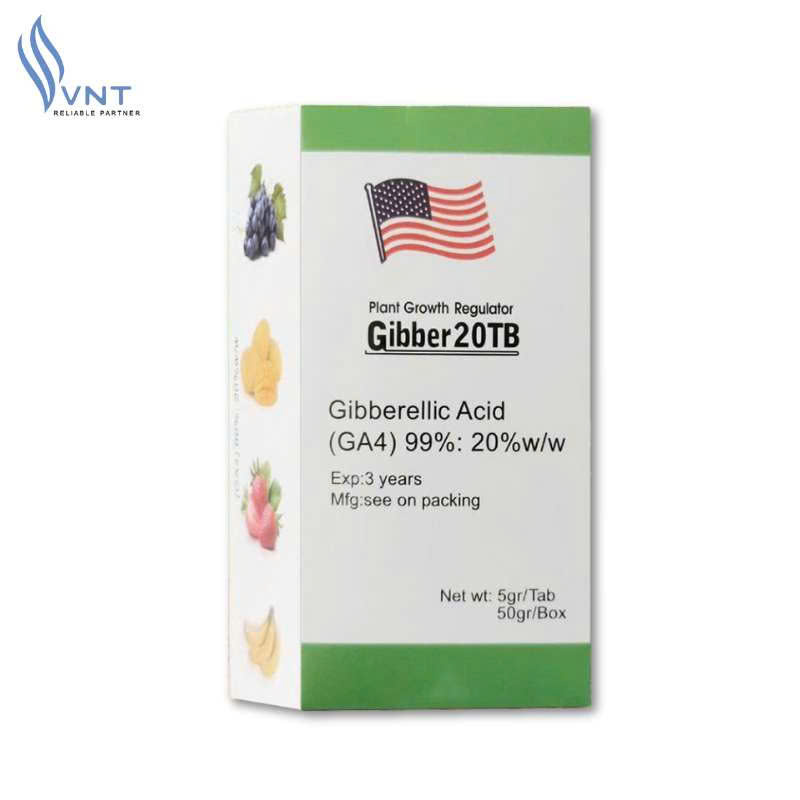
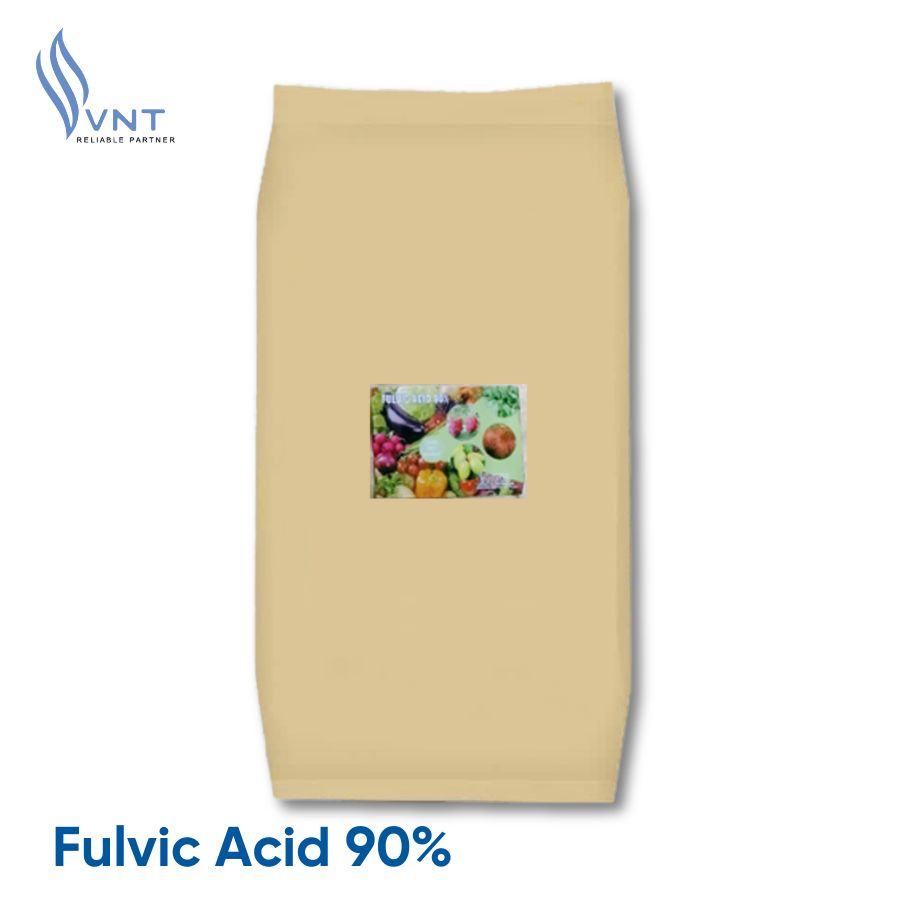
![[Q&A] How Long After Applying NPK Fertilizer Can You Eat Vegetables?](https://vntradimex.com/public/files/news/bon-phan-npk-cho-rau-bao-lau-thi-an-duoc-685e204cde416.jpg)
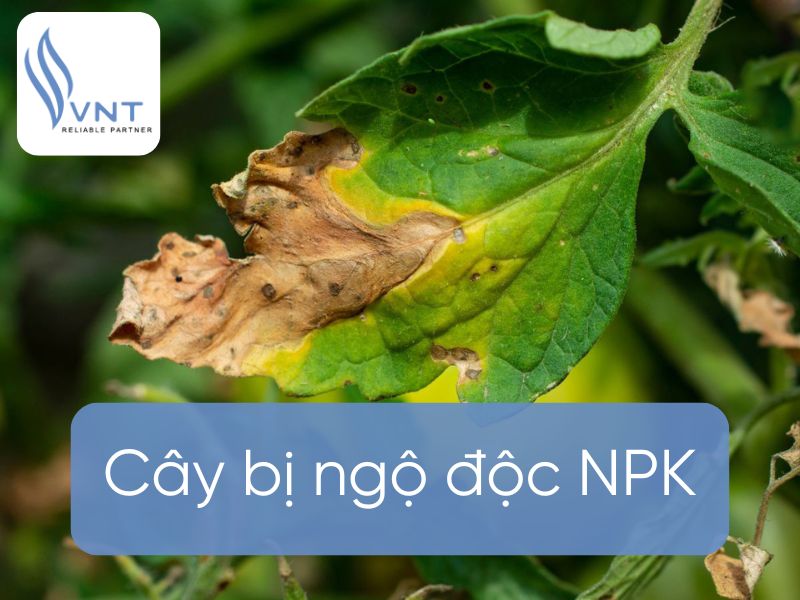
![[SHARE] How to use NPK fertilizer properly that everyone should know!](https://vntradimex.com/public/files/news/cach-dung-phan-bon-npk-dung-cach-682c46ab907d2.jpg)
